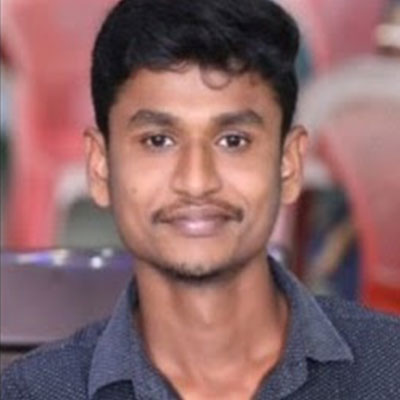Issue/Volume: 18/02

This month, Solidaridad planned several of its activities with an eye to the future. Most importantly, the organisation started the process of formulating its multi-annual strategic plan for 2025–2030. Other highlights include the Netherlands Ambassador’s visit to the Kolkata and Kanpur leather clusters, and the Nico Roozen Center of Excellence for Regenerative Agriculture being honoured with the prestigious Agri Business Summit Award 2024, for its efforts to promote sustainable agriculture.
Happy reading!

Kolkata and Kanpur Leather Clusters Host Netherlands Ambassador
Marisa Gerards, the Ambassador of the Kingdom of the Netherlands to India, Nepal, and Bhutan, recently toured our leather programme areas in Kolkata and Kanpur. On 3 April 2024, she toured the EU SWITCH-Asia’s project locations in the Kolkata leather cluster. Accompanied by Peter Knoope (career diplomat and Associate Fellow, International Centre for Counter-Terrorism) and Namit Shah (Honorary Consul of the Netherlands in Kolkata), Gerards visited Solidaridad’s Centre of Sustainability, where innovative prototypes of pollution-abatement equipment and mechanisms were showcased. Future collaboration opportunities with the Government of Netherlands were also explored.
Besides the Solidaridad team, representatives from the project partners – Council For Leather Exports - India (CLE), Calcutta Leather Complex Tanners’ Association, Stahl and Dugros Leather (India) Private Limited – also participated. Gerards also visited the N. J. Leather Enterprise tannery and the premises of Dugros Leather India Pvt. Ltd., another Dutch company located in the Bantala Leather Cluster.
Next, on 30 April 2024, the Ambassador visited the Kanpur-Unnao leather cluster. She toured the Shewan tannery to observe the pollution-prevention initiatives implemented by Solidaridad, followed by a visit to the Centre of Excellence.

Nico Roozen Center of Excellence for Regenerative Agriculture Wins Big
The Nico Roozen Center of Excellence for Regenerative Agriculture in Sehore, Madhya Pradesh, serves as a training and resource centre for farmers, livelihood practitioners, rural entrepreneurs on different regenerative farming practices. In recognition of the critically useful services it renders to the cause of sustainability in agriculture, the centre has recently been awarded the prestigious Agri Business Summit Award 2024, at the sixth edition of the event that honours organisations, enterprises, and individuals who have left a long-lasting impact on the agricultural sector and economy.
The centre received the honour under the "Society Creative Impact in Agriculture" category by a jury consisting of several noted names from National Institute for Micro, Small and Medium Enterprises, National Bank for Agriculture and Rural Development, Maharana Pratap Horticultural University, Karnal, ITC Limited, NSL Group and its flagship company Nuziveedu Seeds Pvt. Ltd., ThinkAg, and FMC India. The event, held in Hyderabad, also saw two panel discussions on global food security and leveraging the power of partnerships.

At Asia MASP Meet, Leadership Team Commits to ‘Back-to-the-Roots’ Approach
On 4–5 April 2024, Solidaridad Asia held a strategic workshop for the management team to craft a multi-annual strategic plan (MASP) for 2025–2030. The event saw the gathering of 55 senior management colleagues from India, Bangladesh, Sri Lanka, Indonesia, Malaysia, Thailand, China and Japan. At the end of the workshop, Solidaridad decided to commit to a 'back-to-the roots' approach to strengthen its efforts to develop sustainable supply chains, and support economic activities benefiting the poor, without exceeding the planet's ecological carrying capacity outlined in the concept of Planetary Boundaries.

As Mustard Production Clocks Impressive Growth, Model Farms Get Spotlight
A press conference was organised in Jaipur on 3 April 2024 to showcase the achievement (in terms of yield) of the Mustard Model Farm Project. This coincided with the announcement of mustard-crop estimation in Rajasthan and all of India for the 2022-23 period.
The Mustard Model Farm Project, launched collectively by The Solvent Extractors’ Association of India (SEA) and Solidaridad in 2020-21, continues its commitment to increase rapeseed-mustard production in India. So far, more than 3,500 model farms have been set up under the programme in five states.
India has witnessed a remarkable increase in mustard production year-by-year, from around 8.6 million tonnes in 2020-21, to 11 million tonnes in 2021-22 and 11.35 million tonnes in 2022-23, as per the data released by SEA. The increased production is expected to boost domestic supplies of edible oils. At the event, Dr. Suresh Motwani, Programme Head, Edible Oils, Solidaridad, explained how model farms are expected to play a critical role in fulfilling India’s vision of achieving self-sufficiency in edible oils.

Unlocking Pathways to Prosperity for Women Cotton Farmers in Maharashtra
On 5 April, a women farmers’ training event was conducted in Patkakhedi village, Nagpur district, Maharashtra. The Solidaridad team guided the cotton farmers in adoption of good agricultural practices, crop management, identification and control of pests, post-harvest handling, making compost manure, using farm tools and digital tools (in the form of mobile apps). Other topics for discussion included alternative sources of income (such as mushroom farming), network-building, and the creation of women FPOs to increase their bargaining power.

At Krishi Training Session in Jamnagar, Farmers Learn about Seed Production, FPOs and More
Organised by the Krishi Vigyan Kendra (KVK) in Gujarat’s Jamnagar district, krishi training sessions aim to create awareness about improved farming techniques and promote cultivation of black gram, groundnut, castor and pearl millet among farmers practising regenerative agriculture.
One such session on seed production technology was held on 18 April 2024. The Solidaridad team in Jamnagar and the National Seeds Corporation (NSC) took part in the event. It was attended by around 55 farmers who gained valuable knowledge on seed production and multiplication, how to develop and use different seed varieties, reducing the cost of seed production and procurement, knowing farmers’ rights, among other things. The functions of the NSC Consortium of farmer producer organisations (FPOs) were also explained and discussed, and information regarding the consortium’s role in facilitating backward and forward market linkages, and how other FPOs can join it, was shared.

Gram Samruddhi Programme Finds Special Mention in Nayara’s Annual Review
After a rigorous assessment, Gram Samruddhi, a Solidaridad initiative implemented together with CSR partner Nayara Energy, has been recognised in Nayara’s CSR Annual Review 2023–2024. At an event to mark the launch of the progress report in Jamnagar on 11 April 2024, the initiative was hailed under the “Creative Impact in Agriculture” category for its noteworthy contributions to regenerative agriculture and sustainable farming. The practices have had a positive effect on the environment by creating healthy ecosystems, through carbon sequestration and improved water management. “We remain steadfast in our mission to ensure a flourishing, sustainable future,” said Kumar Raghvendra, the programme manager.

In Tamil Nadu, Tannery Staff Receive Training on Occupational Health and Safety
Five occupational health and safety (OHS) training sessions were recently conducted in the leather clusters in Chennai and Ranipet. With a goal to train 250 tannery staff members, the sessions provided lessons on the correct use of personal protective equipment (PPE) in each tannery division, proper handling of chemicals, fire safety, and other related topics. Each session was interspersed with interactions that supported participants in unlearning and discarding preconceived notions and deep-rooted behavioural practices, and helped them learn first-aid practices. Suitable PPE equipment was also distributed among the workers.
An open-day session was also held in the Vaniyambadi cluster for over 85 representatives from different tanneries. Industry stakeholders were kept abreast of our varied interventions – smart water-saving systems, solid waste management solutions and ecopreneurship initiatives.

Farmers in Maharashtra Receive All-round Training in Climate-smart, Regenerative Agriculture
In mid-April, the farmers of Weni village in Maharashtra’s Wardha district participated in a session on smart agricultural practices. They received instructions on how chemical-intensive practices harm the soil ecosystem, and why these need to be replaced by sustainable agricultural practices that not only benefit the environment but also contribute to livelihood enhancement. The farmers attending the session were also taught how to use the Smart Agri mobile app and avail its advisory services that promote climate resilience and integrated pest management (IPM). Other topics such as water-efficient farming practices, the use of crop residue to make organic manure, were also discussed.

Solidaridad Celebrates National Panchayati Raj Day Across Multiple States
Solidaridad observed the National Panchayati Raj Day (24 April) over an extended period between 23 and 26 April in project areas in Madhya Pradesh, Rajasthan, Uttar Pradesh, Karnataka and Andhra Pradesh. Honouring the power of local self-governance, the event acknowledged the importance of grassroots democracy and its champions, and emphasised the need for collaborative efforts to address rural challenges. Around 160 gram panchayat sarpanches expressed their appreciation for Solidaridad’s activities and promised to support the organisation in its efforts to bring about overall development in rural areas.

As Kharif Season Draws Near, Soil Testing Helps Farmer Make Informed Decisions
The lead-up to the kharif season is a busy period for Solidaridad’s experts and on-ground staff. Soil testing is of particular importance during this time, in multiple locations. A soil sample is analysed for its composition, NPK (nitrogen, phosphorus and potassium) as well as pH levels. After the sampling is done, the soil is dried to remove excess moisture and maintain uniformity. The soil testing procedure is vital for making informed decisions on maximising yield, application of inputs and nutrients, and reducing production costs.
With a goal to spread awareness on the benefits of soil testing, the Solidaridad team guided 3,000 cotton farmers in Maharashtra’s Nagpur, Nanded and Yavatmal districts on the prerequisites and measures necessary for soil sampling and testing. The team has been campaigning and spreading awareness on soil sampling/testing, since December 2023, through farmer field schools, training sessions, and agricultural advisories.
In Assam’s Tinsukia district, where the Vodafone-Idea Smart Agri Project is being implemented by Solidaridad, 13,000 small tea growers are supported with soil-testing services. The endeavour started in December 2023 – and, as of April 2024, 10,000 soil test reports have been received, with the final batch of 3,000 samples being processed by the local soil testing laboratories. Once the results are received next month, the endeavour will have fulfilled its goal of empowering small farmers with knowledge on soil conditions, the recommended dose of fertilisers and lowering costs of production for them. These are in alignment with Solidaridad’s long-term goals of reclaiming sustainability and improving soil health.

Textile Unit Owners Get to Know about Solidaridad’s Clean Technologies Deployed in Panipat
Solidaridad’s work on the Namami Gange project in the Panipat textile cluster has garnered the attention of government agencies and experts. Recently, Haryana’s Central Pollution Control Board (CPCB) also requested Solidaridad’s experts to conduct training sessions for the textile industry in Uttar Pradesh and Haryana.
Held on 8-9 April, a two-day programme was designed to provide a holistic exposure to the industrial owners, regarding Solidaridad’s interventions in the Panipat cluster. The sessions explored the techno-economic feasibility of the upgrade and adoption of the best-available clean technologies to reduce freshwater use and the consumption of energy and chemicals, to minimise wastewater discharge and promote water recycling in the textile industry. It featured discussions between the owners and the participants, and provided them an opportunity to explore the potential of these solutions that can be replicated and implemented in their respective institutes. The programme concluded with an extensive knowledge-sharing and Q&A session.
These sessions served as a follow-up to the online orientation and training on “Implementation of Cleaner Technology in Textile Cluster of Haryana and Uttar Pradesh” conducted previously on 27 February and 7 March.

A Sustainable Transformation
Arjun Tukaram Tayank from Makhani village in Maharashtra’s Parbhani district owns eight acres of land on which he cultivates cotton, pigeon pea and soybean. However, challenges such as unpredictable market and weather conditions, lack of modern farming knowledge and skills, significant expenses on chemical pesticides and fertilisers, was making it difficult for him to earn a sustainable livelihood.
The Smart Agri Project equipped Arjun with knowledge of good and sustainable agricultural practices. Furthermore, the weekly advisories are helping him plan his farming activities. He is currently reaping the benefits of drip irrigation and pheromone traps, which is helping him grow more vegetables and stave off pest attacks. He is also producing organic manure and inputs such as jeevamruth, dashaparni ark and nimboli ark which have helped him reduce use of chemical fertilisers and pesticides.
With the help of the project, the yield from Arjun’s farm has improved significantly – for cotton, it has risen from 30 quintals to 35 quintals, while for soybean, it has grown to 22 quintals, up from the 20 quintals he used to grow previously. He is also cultivating seven quintals of pigeon pea, 150 Nagpur oranges, in addition to growing wheat and gram on three acres and one acre, respectively. With the project’s support, Arjun hopes to further diversify his activities by setting up a dairy business, and become a role model for other farmers in the village.

Turning Passion into Reality
Lakhan Pathak, a small farmer hailing from the village of Pali in Madhya Pradesh’s Vidisha district, has a passion for herbal and ayurvedic remedies. He has now started on a journey that is not only changing his own life but also impacting the health and well-being of many.
Through the support of Solidaridad under its Medicinal and Aromatic Plant (MAP) Programme, Lakhan has been able to realise his dream of producing ayurvedic medicines. He has established a company named Bhardwaj Herbs and Ayurveda to manufacture medicines like arshamukti churna, mahabala churna, taruni churna, jod paushtik satva and sahacharadi oil, which are effective in treating wide array of health conditions.
The launch of these medicinal products recently took place at the Solidaridad Regional Expertise Centre in Bhopal. Since 2019, Lakhan has been provided with the technical knowledge of cultivating medicinal crops under the MAP programme. Later, Solidaridad supported Krishak Jagriti Manch, a farmer producer group led by him, in obtaining a licence from the Department of AYUSH and certification from Quality Council of India (QCI) for his products. A medicinal crop-processing unit established by Solidaridad in Pali village gave him and other farmers an opportunity to process the medicinal crops and sell them in the market.

Crafting Their Own Tea Story
Aruldass, a 55-year-old tea farmer, owns a 6.5-acre plantation in the Central Gudalur village in the Nilgiris district of Tamil Nadu. He used to earn a minimum income selling tea to the nearby factories. However, the rising costs of fertilisers, pesticides and acaricides forced him to switch to organic tea cultivation – a journey in which Solidaridad played an important role. Aruldass started to manufacture handmade teas that were marketed locally.
The teas he made fetched him the Best Handmade (Orthodox) Tea award in the National Small Tea Growers’ Conference held in Kolkata in 2022. The good quality of the teas is helping him earn a higher rate per kilogram – ₹6,000 (for handmade green and orthodox black teas), and ₹18,000 (for silver tips tea). He hopes to produce oolong and yellow teas in the future. “I am happy to say that my tea garden has been organic-certified, providing a boost to my income. Solidaridad’s team guided me in the manufacturing process of handmade tea and farm maintenance. Their frequent visits to my farm has encouraged me to do better,” Aruldass says.

B.Susikaran, joined us on 01 April 2024, as a Field Coordinator in our EU Leather project in Tamil Nadu.
He brings with him three years of work experience in the leather industry; in wet end, chemical processes and article development. Previously, he was working with Salma International as a leather technician. He has completed his Diploma in Leather Technology from the Institute of Leather Technology, Chennai.

Divya Soman, joined us on 10 April 2024, as a Programme Officer-M&E in our Jamnagar, Gujarat project funded by Nayara Energy.
She is a post graduate and a Ph.D. in Agroforestry. She is a gold medalist in Ph.D. from the University of Agricultural Sciences, Dharwad and a qualified ICAR-NET. She has completed her Masters from Govind Ballabh Pant University of Agriculture and Technology.
She has also written several articles in scientific journals. She is a recipient of the Young Fellow Award from the Indian Society of Agriculture and Horticulture Research Development, Chandigarh.

Sravan Kumar Kota
Programme Manager- MSME (Textiles)

Apurva Ajmani
Programme Officer- Leather

K Pradeep
Assistant Manager-Trinitea